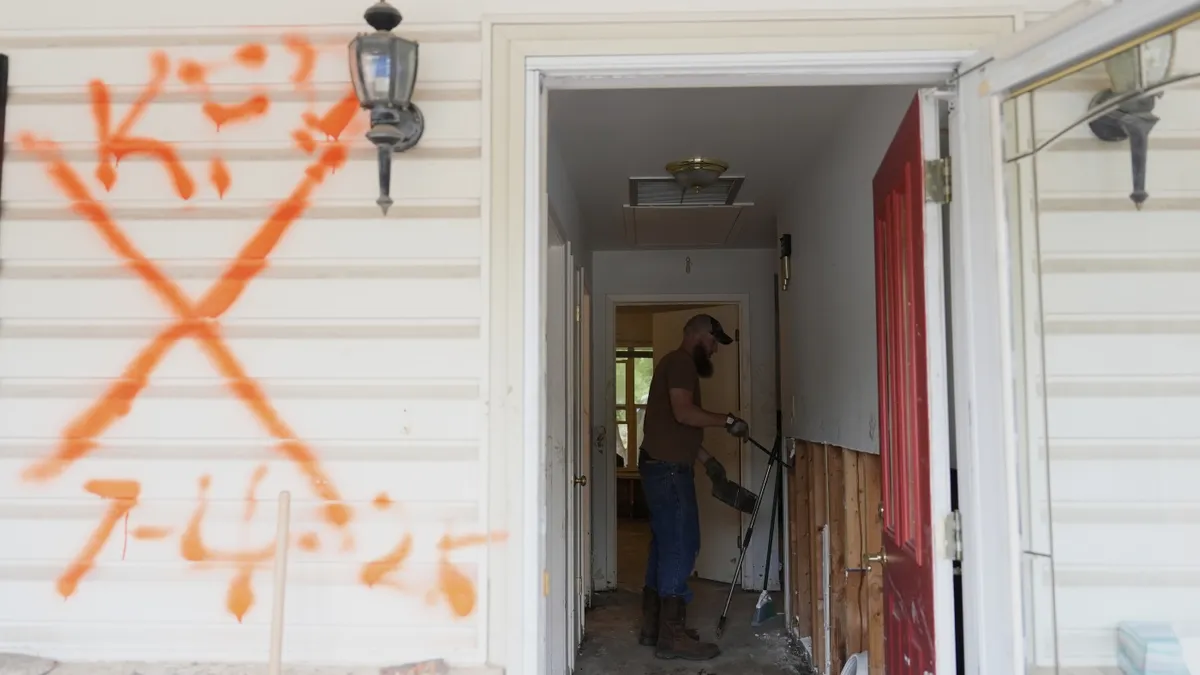
In the aftermath of the devastating floods in Central Texas, Governor Greg Abbott expressed his gratitude towards President Donald Trump for promptly approving a major disaster declaration for Kerr County, the area most severely impacted by the flooding. Abbott commended the "swift and very robust action" taken by the President, stating that it has provided "extraordinary help" in the state's disaster response efforts.
The disaster declaration has unlocked crucial federal funding aimed at assisting those affected by the floods. This financial aid is vital for various aspects of disaster response, including debris removal, deployment of search and rescue experts working tirelessly, and providing essential resources such as housing, food, and other immediate necessities for families who have lost their homes.
Despite the current assistance, the future of such support remains uncertain. President Trump has proposed the elimination of the Federal Emergency Management Agency (FEMA), which traditionally disburses billions of dollars to communities affected by disasters. He contends that states should assume greater responsibility for managing responses to extreme weather events and disasters.
Texas leaders, including Governor Abbott and W. Nim Kidd, the state's top emergency management official, are actively participating in a council appointed by President Trump. This council comprises Cabinet members, governors, and emergency management experts focused on recommending changes to FEMA. At the inaugural meeting of the FEMA Review Council held in May, Abbott stated that "FEMA is slow and clunky" and fails to meet the urgent needs of those affected by disasters. He emphasized that states have demonstrated their ability to respond more swiftly and effectively.
The President has indicated a desire for a significantly reduced federal role in disaster response. In June, Trump mentioned that FEMA would allocate less funding for disaster relief to states. Furthermore, a Bloomberg report revealed an internal memo suggesting that FEMA leaders are contemplating changes that would complicate the process for states seeking financial assistance after disasters.
Currently, FEMA allocates approximately $45 billion annually for disaster relief across the United States. During the first meeting of the FEMA Review Council, Department of Homeland Security Secretary Kristi Noem expressed support for implementing lump sum payments, enabling states to receive large disaster recovery block grants instead of individualized reimbursements for specific damages. Kidd concurred, advocating for the simplification of federal funding distribution and highlighting the challenges faced by state agencies in coordinating with numerous federal offices.
Kidd also proposed that states should take greater responsibility for training emergency management professionals, suggesting the incorporation of emergency management courses in high schools and community colleges. Some council members have even recommended downsizing FEMA's National Flood Insurance Program, which is the primary provider of residential flood insurance in the United States. Recent cuts to FEMA's funding have resulted in the cancellation of billions in grants aimed at helping communities prepare for extreme weather events, even as climate change leads to more frequent and severe weather conditions.
Many emergency management experts argue that FEMA plays an essential role that state governments are ill-equipped to fulfill independently. The scale and financial demands of responding to large-scale disasters often exceed the capabilities of individual states.
In Congress, there are alternative proposals aimed at reforming FEMA. One bipartisan bill currently under consideration seeks to enhance the agency's focus on disaster preparedness and streamline access to funding. This legislation aims to simplify the application process for disaster survivors seeking federal assistance and proposes removing FEMA from the Department of Homeland Security, thus providing it a direct line to the President. The objective is to expedite aid delivery to communities and individuals affected by disasters.
Another proposal introduced by Senator Peter Welch from Vermont, just before the Texas floods, aims to facilitate access to FEMA assistance for rural areas and secure federal funding for preemptive measures against extreme weather.
While President Trump's vision of dismantling FEMA in its current form may face significant hurdles, as only Congress holds the power to eliminate the agency entirely, the executive branch can still implement measures to restructure or reduce its size. This ongoing dialogue about the future of FEMA and disaster response in the United States continues to evolve amid pressing needs and challenges.